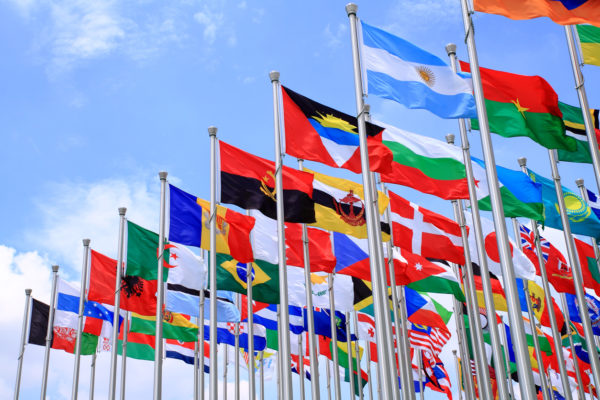Around the time of the founding of the North Atlantic Treaty Organization seven decades ago, its first secretary general, Hastings Ismay, made the memorable observation that the purpose of NATO was “to keep the Russians out, the Americans in, and the Germans down.”
In the years after the peaceful end of the Cold War, that Ismay quote would often be invoked with an accompanying laugh, as a witty but archaic summary of a bygone era. After all, Russia had become a benign nation friendly to the West, Germany was a responsible and well-integrated member state in the European Union, and the United States had for several decades shown our commitment to international leadership and trans-Atlantic partnerships. The challenge the treaty faced during the quarter century from the end of the Cold War up to recent years was to clarify a rationale for its existence.
As NATO approaches its 70th anniversary on April 4, Ismay’s insight about its nativity is relevant again. In a literal sense. A resurgent Russia has invaded Ukraine and threatens the rest of Europe. The United States shows a new affinity for isolationism and new distance from our allies. Although German militarism is no longer a concern, Berlin’s policies on immigration and the eurozone have contributed to resentment and instability in the European Union.
President Donald Trump makes little effort to conceal his disdain for NATO. In this way he follows his predecessor President Barack Obama, who also complained about the burdens and frustrations of alliances. Bashing the treaty has become a bipartisan pastime.
But a look at history offers some perspective about the unique value of it. Never before in world history has a superpower such as the United States enjoyed an alliance system of partner nations voluntarily sworn to cooperate in its defense. Not the Roman Empire, nor ancient China at the height of its power, not the Spanish Empire in the 16th century or the Dutch Empire in the 17th century, nor the British or French in the 18th or 19th centuries, nor Germany or the Soviet Union at their 20th-century zeniths.
To those who would dismiss this or who would question what military value can be added by small nations such as Denmark and Estonia, consider this: More than 1,000 soldiers from NATO nations have been killed in action in Afghanistan. Their nations were not targeted on Sept. 11, 2001. But after al-Qaida attacked the United State on that fateful day, our NATO allies immediately invoked Article 5 and committed their blood and treasure to stand with us in the fight against al-Qaida and the Taliban.
The value our allies contribute goes much beyond troop deployments. NATO militaries purchase billions of dollars’ worth of American-made weapons and supplies. With their global web of intelligence collection capabilities, our allies share intelligence with us of incomparable insight. These nations also provide the United States valuable basing rights, enabling us to forward-deploy our forces to deter our enemies over there, rather than have to fight them here at home.
Even if some Americans doubt the merits of the treaty, our adversaries do not. Russian President Vladimir Putin sees NATO as one of America’s best assets and is waging a fervent campaign to undermine NATO’s unity and effectiveness. When a hostile leader such as Putin wants to weaken NATO, that should tell us something about what he fears – and what he sees as our strengths.
Thirty-five years ago this June, President Ronald Reagan stood atop the wind-swept cliffs of Pointe du Hoc in Normandy and paid tribute to the allied forces who helped to liberate Europe on D-Day.
Standing before the leaders of several other NATO countries, he observed: “We in America have learned bitter lessons from two World Wars: It is better to be here ready to protect the peace, than to take blind shelter across the sea, rushing to respond only after freedom is lost.”
For this reason, he praised it as “a great alliance that serves to this day as our shield for freedom, for prosperity, and for peace.” Reagan’s words provide a fitting reminder of why NATO still matters after 70 years.
William Inboden is executive director of the Clements Center for National Security and an associate professor in the LBJ School of Public Affairs at The University of Texas at Austin. He previously served on the National Security Council staff and at the State Department in the George W. Bush administration
A version of this op-ed appeared in CNN Opinion.




